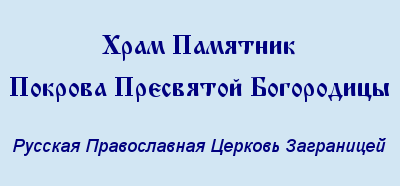Dear Brothers and Sisters,
Congratulations with the feast of the Resurrection of the Lord, as well as with the memory of the Holy Equal-to-the-Apostles Mary Magdalene!
Last week, when the memory of the Holy Fathers of the first six Ecumenical Councils was celebrated, I noted that since we mark the memory of these saints several times a year and always on Sundays, it would be good for us to become familiar with the Ecumenical Councils, with those teachings or dogmas which they defended and explained, and to understand why these teachings are important personally for each of us. Today let’s briefly discuss the First Ecumenical Council and endeаvour to answer these questions.
The first Ecumenical Council was convened by the Holy Emperor Constantine the Great, who was troubled by serious disputes amongst the Christians. He invited all the bishops who wished to come and gather in the city of Nicea, which is located in modern-day Turkey, not far from Constantinople, in the spring of 325, to settle in a spirit of conciliarity the theological dispute about the Holy Trinity and the essence of the Word of God. The council was attended by 318 fathers, amongst whom were the very familiar to us Sts. Nicholas and Spyridon. But the main champion of the Orthodox faith and the most talented theologian present was a young deacon, the secretary of the bishop of Alexandria, St. Athanasius, who in time would himself become the bishop of Alexandria and would be given the title of ‘Father of Orthodoxy’ for his enormous labours in the defense of the true faith.
In those years a mighty controversy was raging about the essence of the Word of God (the Son of God, the Second Person of the Holy Trinity, Jesus Christ) and His relationship to God the Father. Some people supported the traditional teaching that the Word of God was not created, is Divine, and in essence is the same as God the Father. Others, a loud minority which was lead by Arius, taught that the Word of God is a creation of God, and is in essence similar to God the Father, but not identical. As we all know, the Fathers of the First Ecumenical Council confirmed that the Son of God, Jesus Christ, is of the same essence or consubstantial with God the Father. In the Symbol of Faith, we say the following about the Lord Jesus Christ: “Light of Light; true God of true God, begotten, not made; of one essence with the Father.”
It remains for us to answer the question of why all this is important for me personally. The thing is that God created mankind with a certain goal. The purpose of human existence is to become, as much as this is possible, similar to God Himself, and thus to approach Him and even join ourselves to Him. Every one of our sins makes us less like God. As a result of our sins, an insurmountable division is formed between man and God. Our personal experience shows that we are constantly sinning and therefore the goal of our life continues to be unfulfilled. Since it is impossible for a person to become God-like on his own, God sent His only-begotten Son to earth to become a man, Jesus Christ, and, in such a way, to bridge the gap between humanity and God and to join man to Himself. God did for us what we ourselves could not do. Now each and every person can reach his goal in life and commune with God through the Saviour Jesus Christ. If the Son of God were not truly God, if He were not of the same essence as God the Father but a creation of God, He through the incarnation did not create a bridge between God and man, He did not join the nature of mankind to God, but only to himself, another creation, and therefore our union with God does not occur. Do you see that the whole mechanism by which we commune with God falls to pieces if we fall away from the true Orthodox teaching that Jesus Christ is truly God?
Having remembered the great condescension of our God towards us, as a sign of our love and thanksgiving towards Him, let us try as much as is possible to avoid sin and live in a God-like manner. Through the prayers of the Holy Equal-to-the-Apostles Mary Magdalene, may the Lord help us in this task.
priest Alexis







